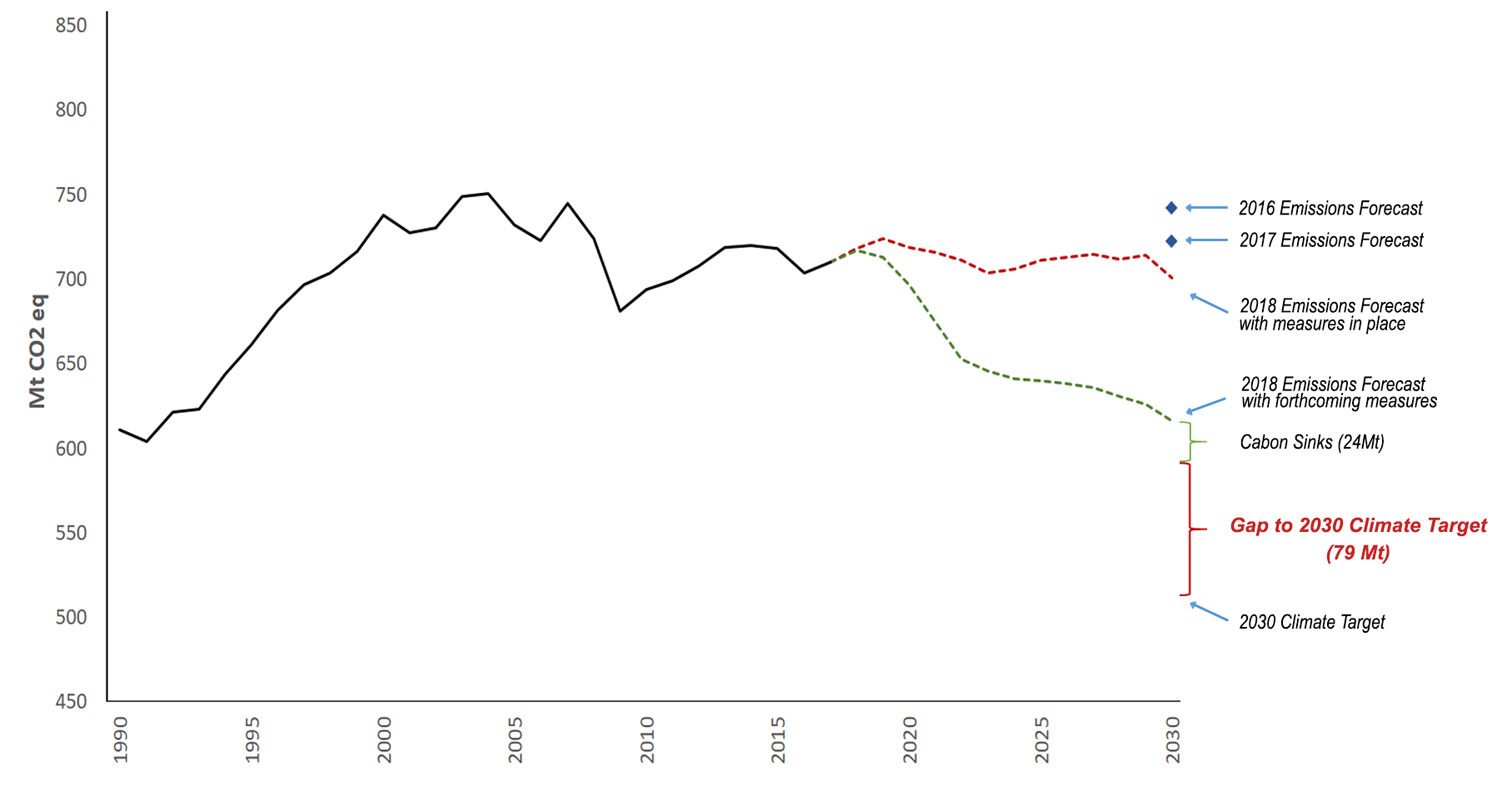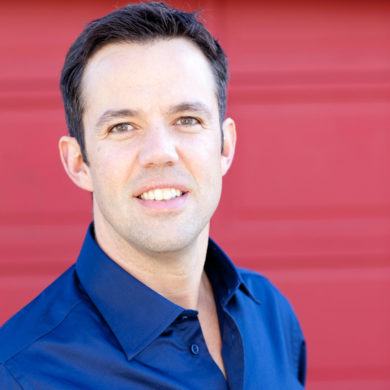
Daytime traffic on the Leaside Bridge in Toronto. (Photo: Matthew Henry via Unsplash)
Pricing carbon pollution, clean fuel standard steps forward; Ontario’s step backward shows need for an effective national approach
Today, federal Environment Minister Catherine McKenna gave an update on the progress Canada has made toward meeting its climate change targets. It included new carbon-cutting policies, among other actions.
First, our new carbon emissions forecast shows that the combined federal and provincial efforts to tackle climate change are working, with greenhouse gas emissions now expected to be 21 million tonnes (Mt) lower by 2030 compared to the path we were on last year.
This is good news, but there’s still much more work to do.
In order to meet our 2030 climate commitment, Canada must still strengthen its policies to eliminate an additional 79 million tonnes of carbon pollution. Much of this gap is a result of the Ontario government’s recent decision to eliminate its solutions that restrict and shrink carbon pollution. In the end, Ontario’s irresponsible backsliding will add 30 Mt back into Canada’s overall carbon footprint.

Canada’s carbon footprint (in millions of tonnes of carbon dioxide per year)
You can’t make progress by going backward, which is what the Ontario government is doing by eliminating its firm limit on carbon pollution (i.e., cap-and-trade system) and clean car and energy efficient home programs.
Ontario’s approach is completely inadequate and irresponsible. It is also profoundly inequitable.
Four reasons why cap-and-trade is ‘for the people’
Climate change is happening here and now, affecting everyone in Canada through wildfires, flooding, heat waves, other extreme weather events and the associated financial and emotional stresses. It’s not fair that Canadians should suffer because the Ontario government is eliminating policies that restrict and shrink carbon pollution.
This is one of the main reasons why the David Suzuki Foundation and Ecojustice have applied to challenge the Ontario government’s approach in court, and support a national carbon price.
All levels of government need to do more. Where provincial governments like Ontario take U-turns on climate action, the federal government must step in to ensure an effective and fair national climate strategy.
Putting the importance of pricing carbon pollution aside, Canada recently reached another important milestone with the release of the first phase of its Clean Fuel Standard — a policy tool designed to reduce carbon emissions from vehicles. Draft regulations are expected in spring 2019. Reducing pollution from transportation — one of our largest sources of greenhouse gas emissions — is key to meeting our climate targets. This important solution will promote and accelerate the transition to lower-carbon fuels across all economic sectors and is expected to cut carbon emissions by 23 Mt per year within a decade. With a Clean Fuel Standard in place, the market for the clean fuel streams in question would roughly double in size, boosting economic activity and stimulating the job creation required to build, operate and supply cleaner and more efficient fuel processing facilities.
Although this policy is new, it’s been proven to work in B.C. and California. British Columbia’s successful experience with its clean fuel regulation saw clean fuel use double, while saving more than six million tonnes of pollution per year since 2010.
Overall, today’s announcement demonstrates that Canada’s national climate plan is making some progress, but it won’t be enough when some provinces are going backward. As a single, united country, we need to do much more to close our current carbon pollution target gaps and increase this nation’s political will and ambition on climate change. To make up the shortfall, all levels of government need to do more, and where provincial governments like Ontario take U-turns on climate action, the federal government must step in to ensure an effective and fair national climate strategy.
Climate change knows no borders. Its jurisdiction is global. All governments in Canada must recognize this and support the best solutions at our disposal to mitigate it and shield our communities from its harmful effects.
Our work
Always grounded in sound evidence, the David Suzuki Foundation empowers people to take action in their communities on the environmental challenges we collectively face.



